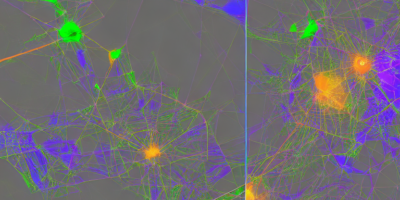In this article, we delve into the realm of functional estimation, nonlinear observer and filter design, full information estimation, incremental system properties, and robust estimation. Our quest is to unravel the mysteries of these complex concepts and present them in a comprehensible manner, as if explaining them to an ordinary person.
Functional Estimation: The Core of the Article
At its core, functional estimation deals with estimating the functional relationship between a system’s inputs and outputs. Imagine you have a lemon tree that produces lemons according to a particular formula – let’s say, 3 lemons for every 4 oranges. If you know how many oranges the tree produces, can you estimate how many lemons it will yield? That’s what functional estimation is all about.
Nonlinear Observer and Filter Design: The Challenges of Complexity
Now, things get interesting when dealing with nonlinear systems. Imagine trying to predict the number of lemons your lemon tree will produce next year based on this year’s harvest. If the relationship between oranges and lemons is nonlinear, you need an observer and filter that can handle this complexity. That’s where nonlinear observer and filter design come into play – they help us tackle these complex relationships and make accurate predictions.
Full Information Estimation: The Key to Accuracy
In functional estimation, we often encounter the issue of limited information. Imagine you have a partial view of your lemon tree – you can only see one side of it. Full information estimation addresses this challenge by considering all available information when estimating the functional relationship. This ensures that our predictions are as accurate as possible.
Incremental System Properties: Understanding the Dynamics
Another crucial aspect of functional estimation is understanding the dynamics of the system. Imagine your lemon tree has a life cycle – it grows, produces lemons, and then rests. Incremental system properties help us analyze how these dynamics affect our predictions. By examining how the system changes over time, we can improve our estimates and make more accurate predictions.
Robust Estimation: The Art of Uncertainty
Finally, robust estimation is the art of dealing with uncertainty in functional estimation. Imagine you’re trying to predict your lemon tree’s next year’s harvest based on this year’s data, but you know that nature can be unpredictable – there might be droughts or pests that affect the tree’s yield. Robust estimation teaches us how to account for these uncertainties and make more reliable predictions.
In conclusion, functional estimation is a powerful tool for understanding complex systems like our lemon tree. By leveraging nonlinear observer and filter design, full information estimation, incremental system properties, and robust estimation, we can create accurate predictions that take into account the dynamics of these systems. So, next time you bite into a juicy lemon, remember the mathematical wizardry behind it!



